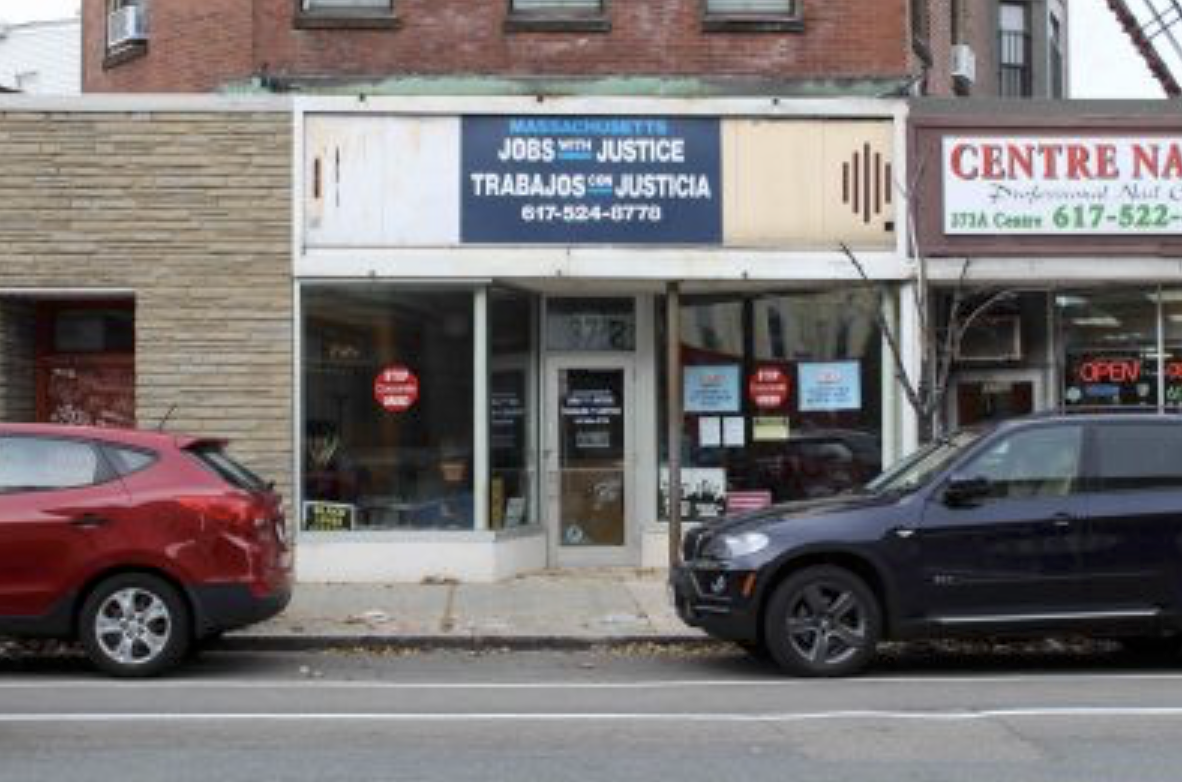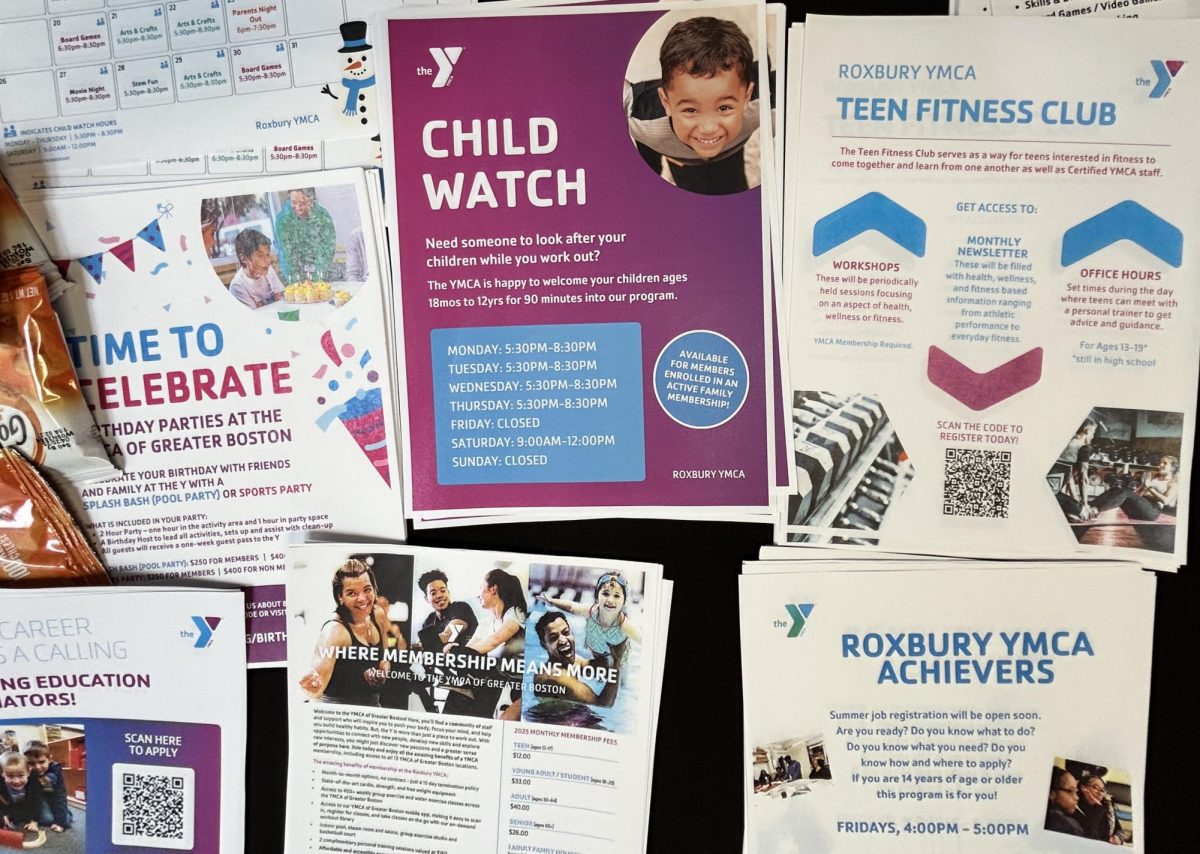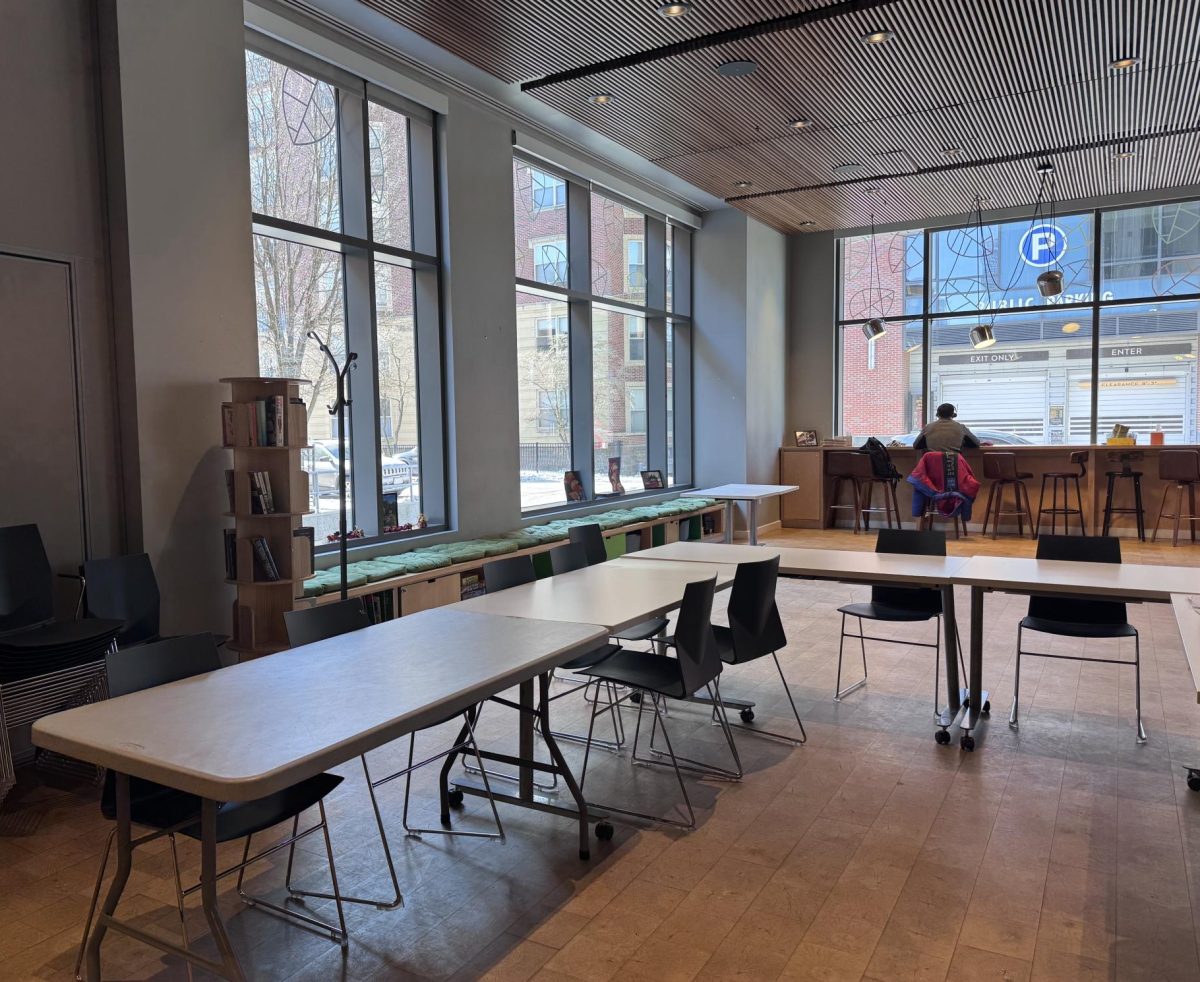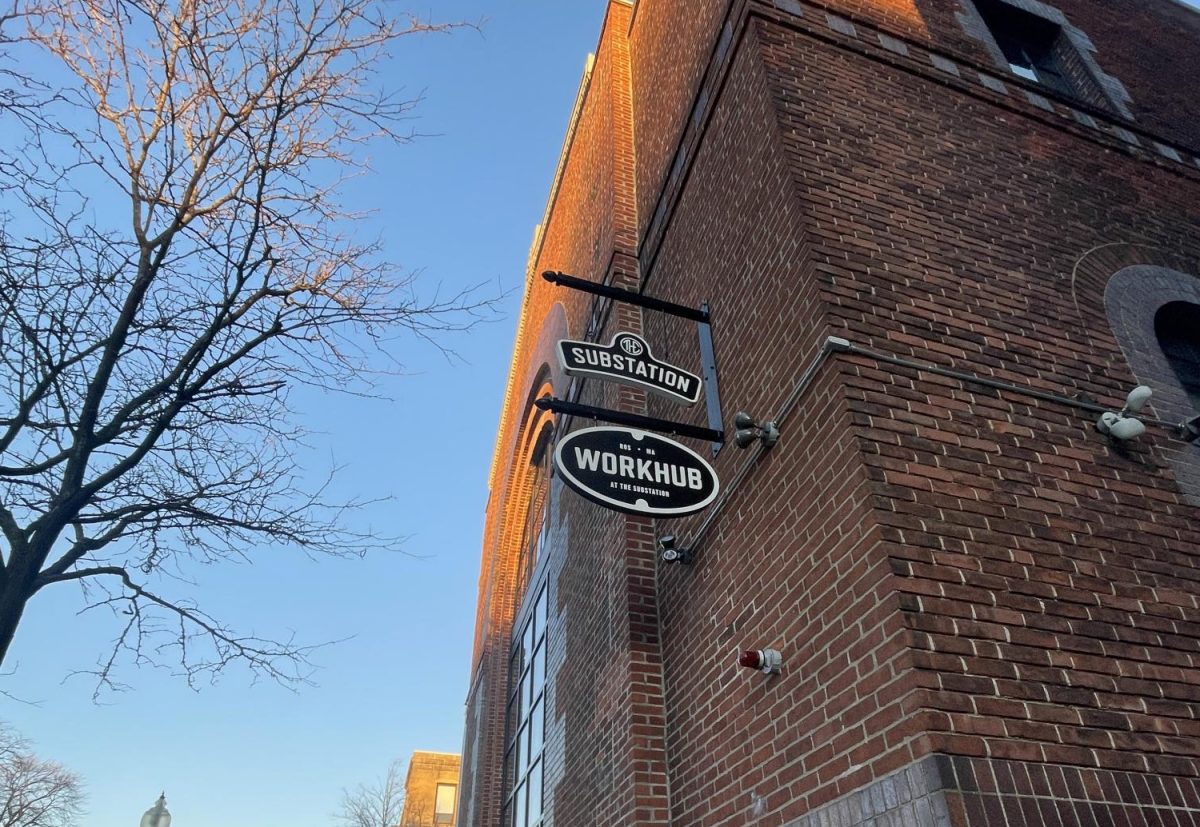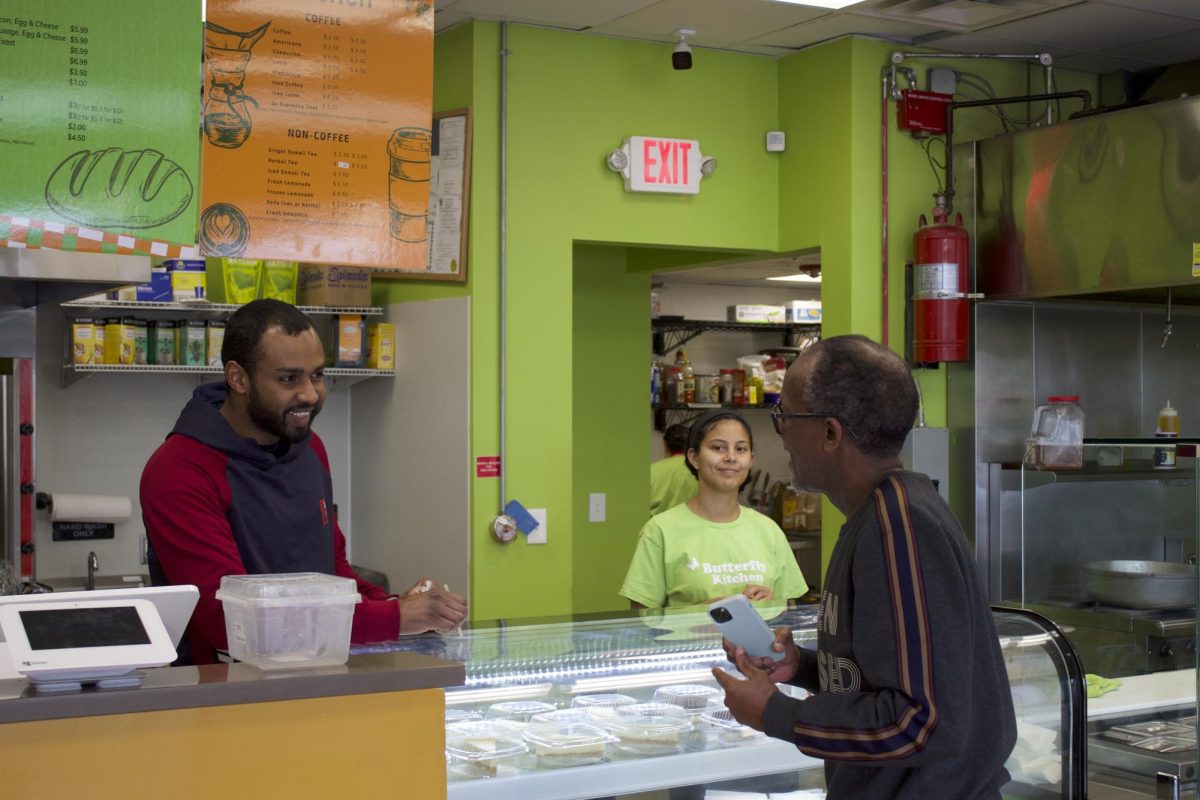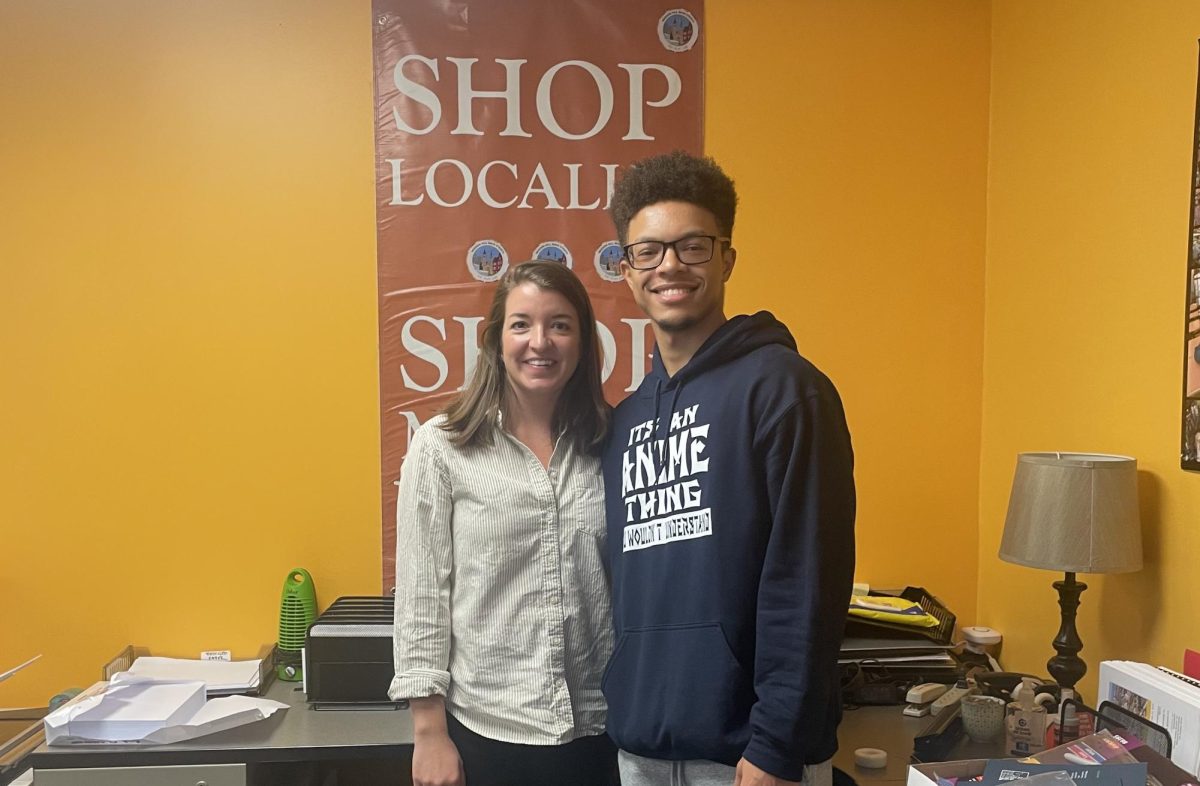By Paxtyn Merten
“Do you know about the Walmart store in Boston?” asked Gillian Mason, an interim director of Massachusetts Jobs with Justice. “It’s a trick question, there is no Walmart store in Boston.”
Jobs with Justice is a national coalition that pushes for equitable labor conditions. In 2013 – when Walmart was intending to expand its presence in large cities across the country, including Boston – Jobs with Justice fought back.
“Walmart was absolutely unwilling to meet any kind of community needs,” Mason said. “And that really sends a message. These companies want to move into Boston, but not bad enough that they actually want to demonstrate any concern for the people who actually live here.”
Recently, the Massachusetts chapter of Jobs with Justice has turned its organizing efforts toward another corporation: Amazon.
In September 2017, Amazon announced a competitive bidding process for the site of its second headquarters (HQ2). The company has estimated that HQ2 will bring in 50,000 full-time jobs over the next decade. Amazon reported that 238 cities and regions submitted bids to become the host site for HQ2. On Jan. 18, Boston was named on a short-list of 20 finalists.
In response to the bidding process, more than 100 workers’ rights groups from across the United States have sent Amazon a “wishlist,” demanding that the corporation support the workers, residents and community in the city they select for HQ2. The list includes three categories of demands: job creation, community support and corporate accountability. Massachusetts Jobs with Justice is one of three organizations in the state that signed the letter.
The Scope joined Mason at the Boston office of Massachusetts Jobs with Justice in Jamaica Plain, where she discussed her organization’s work and Amazon’s forthcoming HQ2.

The Scope: Tell us a little bit about your organization and what you do.
Gillian Mason: We are a coalition organization – which means we are a group of other groups – and we have 160 different member organizations across the state. Those include unions, community groups, student groups, people of faith. And our basic mission is just building working-class power in Massachusetts.
We do a lot of work offering solidarity to union campaigns. We help to do strategic campaigns for workers who are trying to organize for all sorts of different things. We help to protect and defend immigrant workers; we stop deportations. And then we also do a lot of work on public education, which is a really important sector for all of those things right now.
Q: What is your organization’s position on a potential Amazon HQ2 in Massachusetts?
A: One of the core values for Jobs with Justice is that we’re trying to stop corporate greed, and we want to put people over profits. Amazon is a company that just epitomizes the way in which rampant capitalism puts profits over people, right? We know the conditions in the warehousesare not good for a lot of folks. And we know that Amazon has the potential to undercut local businesses. You see a lot of brick-and-mortar stores going under after having to compete with Amazon.
We are particularly concerned in Boston about the impact of Amazon on gentrification and displacement. We are seeing these waves of increasingly powerful capital just moving into the city. People of color are being displaced, working people of all races are being displaced.
Here in Jamaica Plain, it’s a great example. This used to be a neighborhood that was predominantly Latino; now it’s really gentrifying very quickly and we have, you know, a doggy bakery on Centre Street. Or the Whole Foods, for example, which replaced Hi-Lo, which was a Latino supermarket that was very popular among low-income people. So when we see these large companies come in, we see a lot of damage to our communities.
Our strategy is always Jobs with Justice. We know that we need jobs in our communities. People need to be able to work in order to make a living and there are lots of people in this state and in this city who need work desperately. We don’t want to be the people who are standing up and saying ‘no’ to jobs, because we know how important that is.
Q: What are some of the major points in the letter?
A: We want everyone who works in and around Amazon to have a right to form a union if they want to. We want the jobs that Amazon provides to be good, permanent jobs. We want these companies, especially these big companies that can really, really afford it, to be paying living wages and to be really investing in our communities and in the people in our communities. So the jobs piece is really huge.
The displacement piece is also really important. We are interested in having any big companies that move into our city invest in things like land trusts or investing in affordable housing for folks in the area who might risk displacement from the headquarters opening up.
And then, finally, taxes is a big part of it. A company like Amazon is certainly big enough that they can pay their fair share. The things that Amazon is going to benefit from in Boston – including a highly educated workforce, a wonderful, livable city where people will be able to access all sorts of cool stuff – are things that Boston has built up through taxes. And so we want Amazon to pay their fair share if they’re going to be benefitting from that.
Basically, we want our relationship with any company that comes into Boston to be a mutual relationship as opposed to a parasitic relationship.

Q: Why do you consider it vital that workers are allowed to form a union?
A: Honestly, workers who don’t have a union have a tremendously difficult time having any kind of a voice in the way that their workplace works. Unions aren’t always the only solution, but they’re the best solution that we have to make sure that working people’s rights are guaranteed. They also help us to build a certain amount of political power and they demonstrate actively that the workers are a critical part of the company.
Q: The letter also addresses automation, specifying that Amazon should include warehouse workers’ input and provide retraining programs when automation causes lost jobs. I’m wondering how this might be realized.
A: The way that Japan handles automation is really kind of an interesting lesson for the rest of the world. Basically, the Japanese business philosophy is largely centered on human relationship with technology, so the technology becomes a tool by which humans are able to accomplish their jobs rather than a replacement for people because they tend to respect the value of people in their work. People are really what adds value to any company.
Q: Why did you sign onto the letter, as Massachusetts Jobs with Justice?
A: We signed onto this letter because we prioritize the people in the communities where we work and in the communities that we serve. Right now, we’re all under attack. We have lot of groups of people that are being targeted, including immigrants, people of color, women, trans and LGBTQ folks, right? So we have all these folks who are really vulnerable right now. This is not the time to allow big businesses to come in and prey on people’s fears about jobs.
Q: What do you think the impact of the letter will be?
A: I think there are two main audiences for that letter. The first thing is we want to tell Amazon, the company, that we’re not going into this blind and that we are thinking about these issues. And then the other thing that the letter does is really help to educate other folks about the problems that come along with this. Frequently, the local media will spin this as ‘Jobs! Jobs! Jobs!’ But poverty jobs don’t actually help our community.
Q: What makes your organization qualified to advocate for these issues?
A: We have a 25-year track record of winning victories for working people, from raising the minimum wage to making sure that Walmart wasn’t allowed to come and run rampant all over the people of Massachusetts to helping people like the Verizon workers who are on strike, helping them to build a solidarity campaign that allowed them to win. So we have a great track record, but more importantly we are rooted in the relationships between communities and workers organizations and that’s what allows us to speak to both sides of this issue. The workers are members of our community and vice versa.

Q: Do you anticipate that Amazon will follow these guidelines?
Amazon has an opportunity to be a leader here and I would certainly welcome for them to do so. That being said, we are in a polarized moment in our country’s history — not that our country hasn’t always had its problems, but it does seem like we’re living in the end days of the United States right now, and with the current administration companies are free to run wild. At a national level, our government is eroding any kind of accountability we have for corporations. So I do fear that, in this climate, corporations will feel emboldened to just completely bulldoze over community concerns and literally bulldoze over communities.
Q: What will you do if Amazon does come here, but does not hold to these promises? How will you hold them accountable?
Well, the same way we hold all employers accountable, and that is through a combination of leveraging our partnerships and then militant direct action. So if they do move in and they are not complying with community benefits agreements and they aren’t meeting the demands of the community, then they can expect lots of protests on their front doorstep.
This article was updated on January 19, 2018 after Boston was named on Amazon’s “short-list” of 20 finalists in the bidding process to host HQ2.

